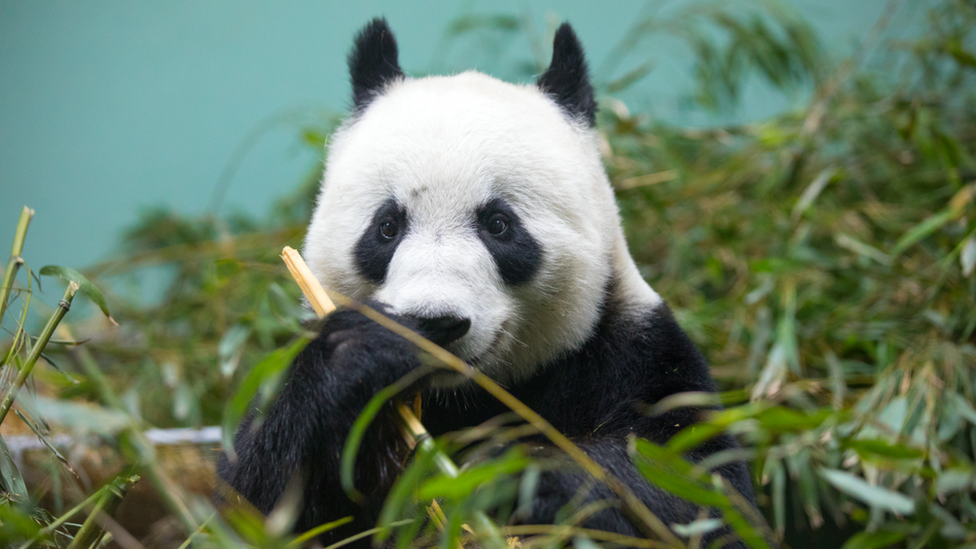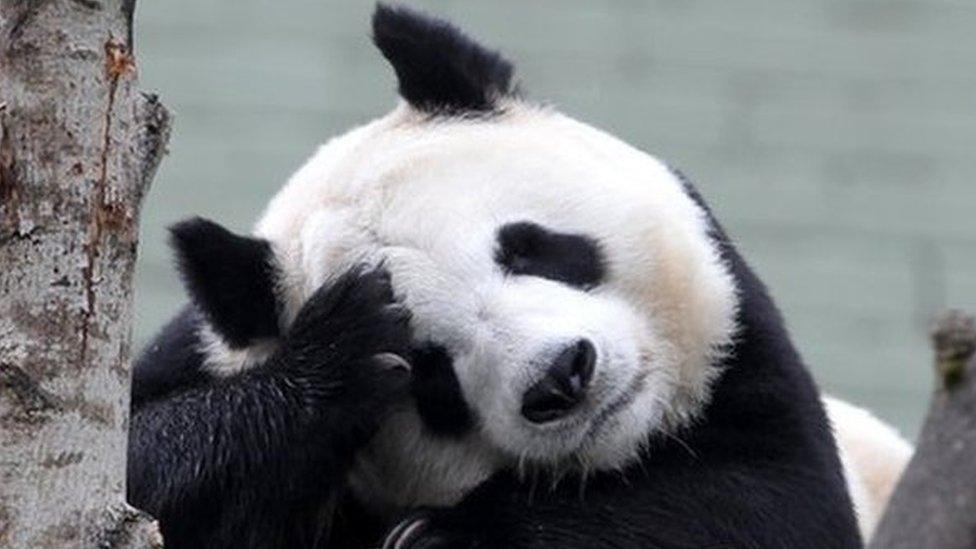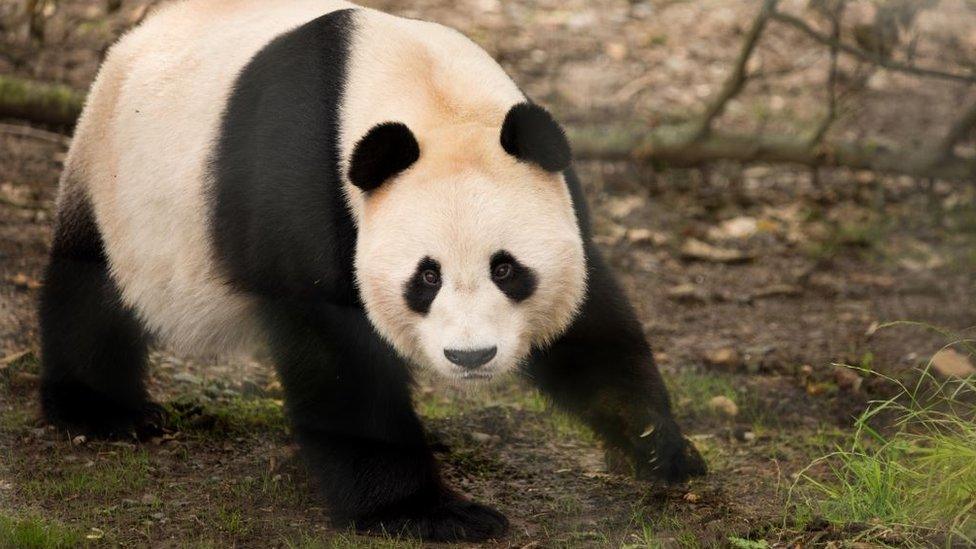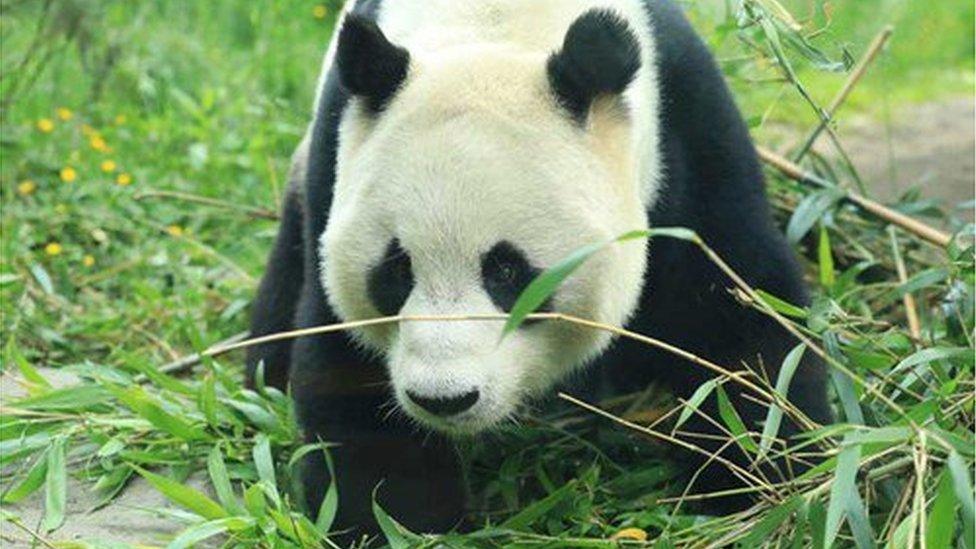Edinburgh Zoo reveals giant panda Tian Tian is not pregnant
- Published

Tian Tian has not become pregnant after being artificially inseminated in March
A sixth attempt to produce a giant panda cub at Edinburgh Zoo through artificial insemination has failed.
The zoo's female panda, Tian Tian, has not produced a cub following the latest procedure in March.
The Royal Zoological Society of Scotland (RZSS), which owns the zoo, has confirmed the attempt was unsuccessful.
Tian Tian has failed to reproduce despite repeated artificial inseminations since her 2011 arrival.
Charlotte MacDonald, the zoo's director of conservation and living collections said: "Tian Tian was artificially inseminated at the end of March and we now know this was not successful.
"Giant panda breeding is an incredibly complex, unpredictable process and we will continue to share our research with our colleagues in China.
"It is too soon to say what any next steps will be."

Tian Tian arrived in Scotland, along with Yang Guang, from China in 2011
Tian Tian, which means "Sweetie", and her mate Yang Guang, which means "Sunshine" came to Edinburgh in 2011 in a 10-year agreement with the Chinese government.
The two giant pandas are being rented by Edinburgh Zoo from the Chinese government for an annual fee of about £600,000.
Tian Tian had previously given birth to twins in China but all attempts to produce a cub at Edinburgh Zoo have failed.
Programme suspended
Zoo staff believe she may have been pregnant on a number of occasions but pandas sometimes re-absorb the foetus during the course of the pregnancy.
Panda reproduction is notoriously difficult, partly due to the very short breeding window with ovulation occurring only once a year.
Staff had hoped Tian Tian would mate naturally with the zoo's male giant panda Yang Guang but after years of failed attempts the breeding programme was suspended last year, with officials saying they wanted to make improvements to the pandas' enclosure before trying again.
In November, it was reported that the zoo's male giant panda Yang Guang had both testicles removed after tumours were discovered by keepers.

Yang Guang in his new enclosure earlier this year
This year, a decision was taken to artificially inseminate her using sperm from a panda in the Chinese panda breeding programme.
Some animal rights campaigners have criticised the use of artificial insemination and attempts to breed the animals in captivity as there is no intention to return to them to the wild.
- Published4 January 2019

- Published12 March 2018

- Published11 September 2017
